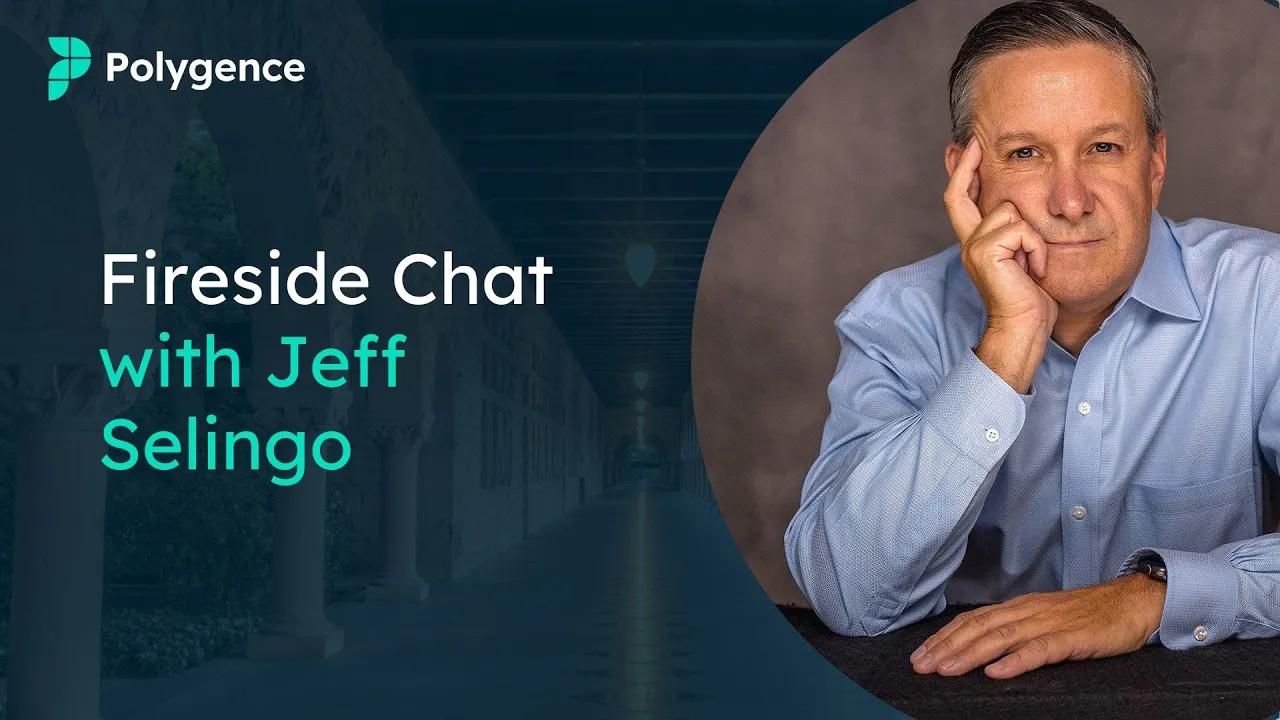Who Gets In and Why - Trends and Challenges in Higher Ed with Jeff Selingo
7 minute read
If applying for colleges was overwhelming before, ChatGPT, social media, the mental health crisis, test-optional admissions, rising tuition costs, fewer available spots, and admissions court cases have really upped the ante. To help us understand the possible impact these trends might have on upcoming admissions, we turned to an expert who has been closely monitoring and writing about the higher education landscape for over two decades. Jeff Selingo is an award-winning journalist and author of many bestselling books, the most recent being Who Gets In and Why. We highly recommend you check out our entire chat with him. He brings so much excellent insight to the table. Read on for some of our key takeaways from that discussion.

Is ChatGPT your admissions officer?
Top of mind lately for many educators and administrators is the fear that ChatGPT might be used by students to write their essays. Jeff dismissed this threat by pointing out that ChatGPT doesn’t yet have the capacity to write a believable personal essay all on its own. “It can’t think like people,” he said, but it can definitely help. Students already get help on their essays from counselors, parents, mentors, and/or teachers. Admissions officers are aware students don’t write in a vacuum. Only if AI reaches the point that it can write a compelling personal essay without the student, then colleges might decide to retire the essay and look for other application assets. But we’re not there yet.
Do your own research through Polygence!
Polygence pairs you with an expert mentor in your area of passion. Together, you work to create a high quality research project that is uniquely your own.
Surprisingly AI might have a larger impact on the other side of the admissions desk, as a tool used by the admissions office itself. The increasing volume of college applications (a 30% rise over the last three years) has spurred burnout and higher rates of staff turnover, making it even more difficult to parse thousands of files. Using an AI to take a first pass at “reading” the essays and weed out a certain percentage of applicants is being considered as a possible way to handle the volume. (Incidentally, this is tech that is already being used to filter job applications by recruiting companies.) There is already an AI experiment being done at one research university to reduce the application pool without human intervention. This raises the question about “holistic admissions.” Whether colleges will be transparent about using AI as part of their admissions filtering is a good question.
In terms of the attitude Jeff thinks we should all be taking toward ChatGPT, he advises all of us to accept it as a tech that is already here and to learn to use it as a versatile writing tool, in the same way that we’ve come to use Google and Word as tools to help with spelling and grammar. As a journalist, he says he uses it to help him refine interview questions. Students can use ChatGPT to help them refine their essays and as an additional editor.
Your Project Your Schedule - Your Admissions Edge!
Register to get paired with one of our expert mentors and to get started on exploring your passions today! And give yourself the edge you need to move forward!
Race and the application process
The Harvard and UNC cases that are before the Supreme Court right now have really sparked debate over how to best create racial, socioeconomic, and religious diversity on college campuses. Jeff thinks that, in general, we have a big misunderstanding of how race is used in admissions, particularly at the most selective colleges in the U.S. These are the places “where seats are scarce and there are more applications than they know what to do with” and so affirmative action in admissions takes on a heightened significance.
The misunderstanding surrounds when race is considered during the application process. (If it is considered at all; at some schools, like the University of Washington, consideration of race is prohibited by state laws.) The common misconception is that applications from underrepresented groups go straight into a separate pile right from the start and follow a separate track into the college. This is not the case in Jeff’s experience. The reality is that race is only taken into account as a plus factor at the very end of the admissions process. Race only comes into play when weighing students who have already been deemed highly qualified and selected “within the realm of possibility” for admissions.
Race is not the only determining factor at this endpoint. Other final “hooks” that can make or break an applicant include alumni status, legacy status, gender, and/or a student’s major. So to say that a student got into a school based solely on race and that they were otherwise unqualified is false and unfair given the actual admissions process. Athletics, unlike race, is a totally separate avenue into the admissions process and those applicants are held up to different academic standards. For that reason, Jeff feels strongly that the athletics admissions track deserves further scrutiny.
How to achieve diversity on college campuses
In order to achieve more diversity, one answer might be to grow the programs and address the supply and demand problem. (Amazingly, the top 25 colleges are essentially the same sizes they were in the 1970s even though they’ve had a huge influx of applicants.) If the problem is scarcity and too many students vying for too few open seats, then we should increase the sizes of these top colleges. Given that not much has changed over the past decades, however, this solution is not looking likely.
Another more actionable solution would be to broaden the scope of colleges that students want to look at. Elite colleges will in all likelihood continue to have massive amounts of applicants and the demand for them will not go away. But we can encourage students to widen their definition of what a “good college” might be. Jeff concedes this is a difficult point for many families to accept and his next book might take this on. His research shows that a bachelor’s degree is still highly valuable for employent and starts paying off immediately upon graduation. But the process of when and how you get that bachelor’s is something that can and probably should be more diverse. Maybe the path to college means a gap year or maybe several. The rush to college works well for some, but not for others. Jeff’s research found that the STEM major mattered more than the selectivity of the college you go to in terms of higher salary outcomes.
As for leveling the playing field in school admissions, one idea was to limit the number of activities you could list on the Common App in order to give kids without access to those opportunities a fighting chance. Because it’s so difficult to get anything changed on the Common App, however, Jeff doesn’t foresee that happening. What he would like to see happen is for college admissions officers to have more context about each applicant’s background and know if they didn’t have access to the privileges other kids have.
How “test-optional” impacts your application
When students don’t submit test scores—and oftentimes even if they do—colleges are digging deeper into high school transcripts and extracurriculars to see if a student has some sort of plan. They want to see that deliberate choices are being made, driven by an obvious passion. Parents make a real mistake in urging their kids to do it all and overbook their time. Pulling them in so many different directions—multiple sports, debate, clubs, research, academics, student council, you name it—is really not good for their mental health. And when it comes down to it, admissions officers are not looking for someone who is passable at many different things. They are looking for quality over quantity. If students can clearly show the reasons why they do the three or four activities that they do and how they are connected to their interests on their application, that is ideal.
One of the most memorable student applications Jeff saw while writing his book was by a football player who had started a crafting club at his school. His application dispelled a lot of the stereotypes around football players and felt very unexpected. An application that demonstrates surprisingly genuine passion will rise to the top. Admissions officers can tell if a passion is genuine because of the consistency they see across different parts of the application. That same passion comes through in the course selection, the student’s recommendations, the essay, and extracurricular activities.
The importance of a story arc in applications
What’s important in putting together the application is the student’s narrative. You have 10 minutes to persuade the person who is reading your application to admit you. So what is your story? If you had that person trapped in an elevator, what is the story you would tell? In the rushed assembly line of putting together applications for multiple schools, that story so often gets lost.
Mental health, failure, and social media
For many kids, getting a rejection letter from a college is their first real taste of failure. As parents, we don’t educate kids on how to process failure productively when they see us getting upset and assigning blame, be it to the child, schools, process, or anything else. College acceptance announcements via Facebook groups and other social media really ratchet up the pressure and anxiety that kids and their families are already feeling. They heighten the sense of FOMO (fear of missing out) instead of helping kids see the wider world of opportunities that are available to them.
On that note, Jeff profiles a few students and their college journeys in his book and his key takeaway is that people find their place eventually, whether or not they get into their top school. If we can really take a step back and look at the process with a wider lens, we might be able to tamp down some of the unnecessary stress and help kids find their next path. Jeff likes to remind students and their families that college admissions is not the last and only big decision that they will have to make in life, even though it may seem like it at the time. In 20-30 years, where you went to school and what you majored in won’t even matter as much as we think it does.
Want to start a project of your own?
Click below to get matched with one of our expert mentors who can help take your project off the ground!
